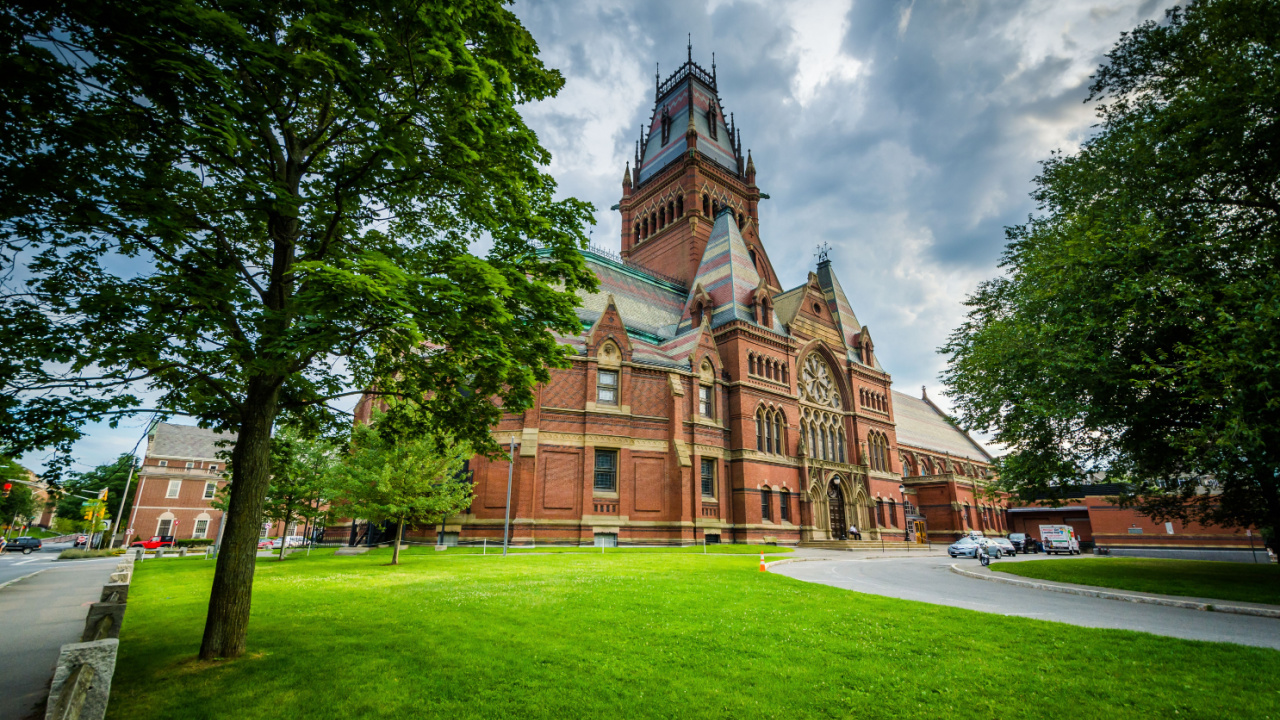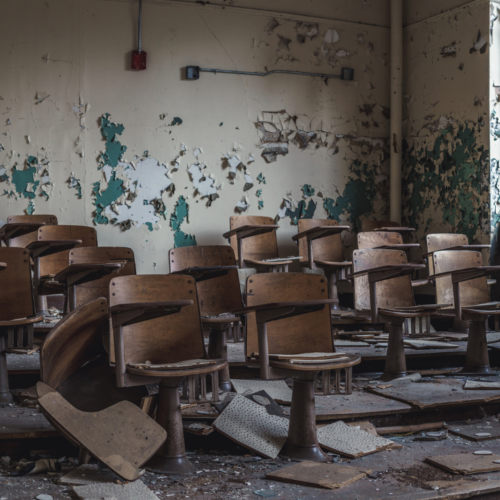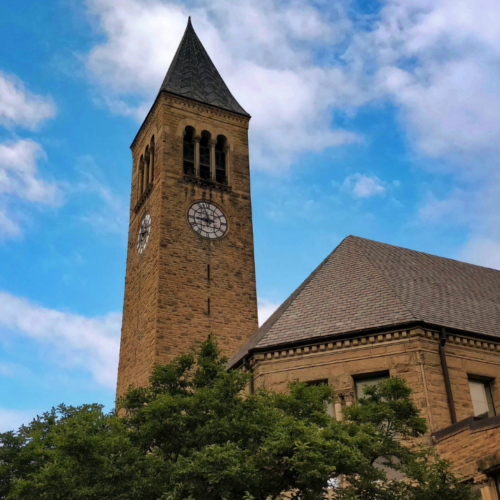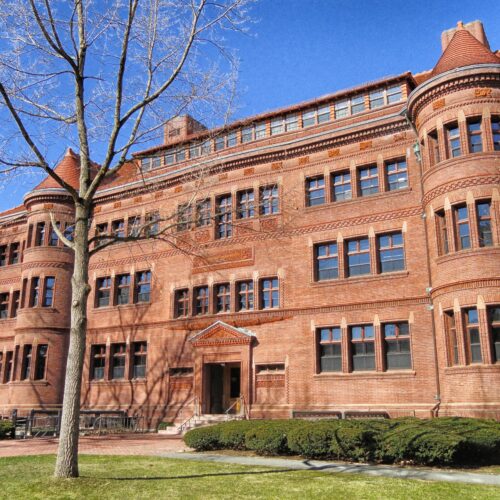The Woke College President

“Social justice” college presidents are hostage to their own rhetoric and to the woke coalition that elevated them to their offices.
Editor’s Note – Wokeism, the revolutionary ideology of the woke-regime, was born on college and university campuses. As wokeism gained its footing, it broke down ivy-covered walls. “Now,” wrote the anti-woke liberal journalist Andrew Sullivan, “we are all living on college campuses.”
We saw the effects of wokeism in the recent antisemitic, pro-Hamas demonstrations. The protests were a natural and predictable outgrowth of wokeism, more specifically DEI and critical race theory, which divide the world between oppressors (always white people) and the oppressed (everyone else). By this logic, the Israelis, who are (mostly) white, were oppressors. So who cares whether they have been killed, raped, and beheaded by bloodthirsty barbarians. To the woke leftists, the Israelis had it coming.
Reforming higher education won’t be easy, but if trustees take back control it would be a start. The trustees could begin using their authority to hire presidents who are committed to nurturing, not global citizens, but American citizens who have the knowledge and character that is required of our self-governing republic. A college, as with most organizations, rots from the head down.
College presidents no longer understand they are meant to serve a public good, the American good. Serving that good is why their institutions receive tax exempt status.
- College presidents are supposed to be building the next generation of American citizens and as such they should be teaching about America, and what it means to be a good American citizen.
- They should be trying to develop young men and women of character, the sort of character required if our self-governing republic is to survive.
- They should be teaching students to question assumptions, not matter how well established, which means teaching humility, something in very short supply on college campuses these days. It is this lack of humility that has led to so much censorship and intolerance of heterodox views, particularly conservative ideas.
- They should be teaching students how to live up the Founders’ ideals: instead, they are teaching that the Founders’ regime should be overthrown, replaced with the social justice or woke regime where all identity groups have equal outcomes. The pursuit of that regime requires the destruction of standards and excellence.
The mission of higher education for most of the nation’s history was to shape citizenship, build character, inspire the quest for knowledge, and pursue ideals. But that general mission went by the boards in the last half century. It has been replaced with a new set of imperatives: Western Civ—out, multiculturalism or wokeness in. Character out—self-discovery in. Vocation out—credentialism in. Disciplined search for truth out—relativism and post-modernism in.
The great shift in the mission of higher education has meant a new emphasis on that diabolically deceptive word “diversity,” which really means something like “conformity on all matters related to identity. Many presidents owe their appointment to their successful posturing as committed advocates of diversity. “Diversity is America’s greatest strength” is an aphorism which is tearing America apart. The more different cultures in a society, the less freedom. Commit yourself to diversity and you have committed yourself to destruction.
The new missions of higher education are highly attentive to making citizens aware of and involved with “the world” and “global citizenship.” Sometimes “social justice” is solemnly invoked. Personal “transformation” (From what? To what?) comes into play. Students are often encouraged to devote themselves to saving the Earth from environmental catastrophe.
The “liberal arts” may be mentioned but that term has undergone a sea change, and now means something like devoting oneself to deconstructing the claims of loyalty to family, nation, religion, and Western civilization. “Critical thinking” is to be extolled as long as it is understood as radical skepticism towards the American founding, the rule of law, and free markets.
The language of the contemporary college mission statement, in other words, is a license for the woke to pursue their intellectual and emotional undermining of the American experiment. It follows the usual logic of dividing society between oppressors and the oppressed, and it makes clear that the enlightened person knows he must always, everywhere, and reflexively side categorically with whoever holds the best claim to be the oppressed.
The dream that encompasses all the others is that the university is a transformative institution that will revolutionize society and make the whole world a better place. That “better place” is the woke regime. Here is what Harvard’s new president Claudine Gay said at her inauguration on September 29:
“The courage of this University — our resolve, against all odds — to question the world as it is and imagine and make a better one: It is what Harvard was made to do. By continually recommitting ourselves to our central purpose, with renewed vision and vigor, we advance the prospects of humankind.”
If anywhere but Harvard, this declaration of “central purpose” would seem bombastic. Do the prospects of humankind depend on what President Gay will do next?
Let’s hope not. Her commitments can be neatly summarized as the DEI agenda:
“We embrace diversity — of backgrounds, lived experiences, and perspectives — as an institutional imperative,” she said. “When we do that, it’s not with a secret hope for calm or consensus. It’s because we believe in the value of dynamic engagement and the learning that happens when ideas and opinions collide.”
Gay’s oration in favor of promoting race, “economic mobility,” and “pragmatic collaboration” in pursuit of what Harvard’s PR flak called “her vision of a vibrant, diverse community equal to the particular challenges of the world’s most daunting problems,” came just eight days before the diverse, mobile, and pragmatic agents of Hamas descended on a music festival and numerous small villages in southern Israel.
Note Gay’s term, repeated several times in her inaugural: courage. “The courage of this University,” “the courage to take a chance,” etc.
This quality, however, was conspicuously absent, when, two days after the Hamas atrocities, President Gay, backed by a phalanx of 17 other Harvard deans and administrators, issued a statement saying they were “heartbroken by the death and destruction” and called for “an environment of dialogue and empathy.” What occasioned the hurried statement was the now infamous letter from the “Harvard Palestine Solidarity Groups,” a coalition of some 30 student groups defending the massacres and declaring “the Israeli regime entirely responsible for the unfolding violence.”
The statement by President Gay and her administrative cohort said nothing about the perpetrators of the massacres or the Harvard students who endorsed them. This was a serious misstep, and almost instantly provoked angry reactions, including one from former Harvard President Lawrence Summers. The next day President Gay regrouped and issued a second statement, more strongly worded than the first. On her second try she declared “the terrorist atrocities perpetrated by Hamas” to be “abhorrent.” The full text of her statement is notable in its brevity:
“As the events of recent days continue to reverberate, let there be no doubt that I condemn the terrorist atrocities perpetrated by Hamas. Such inhumanity is abhorrent, whatever one’s individual views of the origins of longstanding conflicts in the region.
Let me also state, on this matter as on others, that while our students have the right to speak for themselves, no student group — not even 30 student groups — speaks for Harvard University or its leadership.
We will all be well served in such a difficult moment by rhetoric that aims to illuminate and not inflame. And I appeal to all of us in this community of learning to keep this in mind as our conversations continue.”
While this second statement appeased some of her critics, others were further inflamed. President Gay avoided saying anything about Israel’s right to defend itself. Moreover, she distanced herself from the letter from the “Harvard Palestine Solidarity Groups,” while taking care to defend their “right to speak,” and tepidly calling on everyone not to “inflame” the situation.
This was widely understood as an evasion. The situation was already inflamed and about to break out into campus protests across the country. President Gay signaled both her reluctance to get in the way of the student Hamas apologists and then, when pressed, her further reluctance to go beyond expressing her distaste for bloodletting.
I have singled out President Gay’s words and actions because they are the best and most conspicuous example of a pattern that can be found throughout the Ivy League, elite liberal arts colleges, and a fair number of other public and private universities. The “social justice” college presidents are hostage to their own rhetoric and to the woke coalition that elevated them to their offices.
Diversity requires colleges to hire women presidents, better still if they are black women. Of course, women can be as good as men, but when all colleges rush at once to get their woman president, inevitably something other than a concern for finding the most able leader has intervened.
Because the role of a college is to instill character in its students, it is imperative that universities seek in their candidates for president not only demonstrable ability but proof of good character. Maybe we no longer require or expect that in politicians, but it remains essential in the people appointed to oversee the education of our students. And it appears to be in short supply.
There is nothing new in this story. I recite it yet again to give that precious quality “context” to the position of today’s college presidents. They owe their positions, one way or another, to their having demonstrated exceptional enthusiasm for the woke agenda. Their college “missions” are no impediment. For the most part those “missions” are an accelerant. Here’s Harvard’s mission.
Given all this, one can ask, are there any good college presidents today? The answer is certainly Yes. I think, for example, of the hundred-some college presidents who signed the “We Stand Together with Israel against Hamas.” I know only some of these individuals and cannot attest to the sterling qualities of them all, but the list would be a good place to begin a search for college presidents of integrity. I know of other college presidents who did not sign the statement but who have taken important stands on this issue.
But I wouldn’t want to make standing up against the barbarism of Hamas the sole criterion of a good college president. The territory is filled with temptations to buy “social justice” peace at the expense of educational principle. Wokeness is all around. Where does the college stand on election integrity, national borders, racial preferences, climate catastrophism, transgenderism, intellectual freedom, the 1619 Project, mandatory Covid vaccines for those at negligible risk, indigenous rights, and land acknowledgements, not to mention the need for academic standards and a meaningfully coherent college curriculum?
In this situation I think it is folly to ask or expect college presidents to espouse “institutional neutrality.” It is not that college presidents should feel free to articulate partisan political opinions—they shouldn’t— or to commit their institutions to a platform on every matter of public debate. But the reality is that colleges and universities have already been deformed into political actors, and the only way out of this is by taking clear steps to oppose the woke agenda that pervades American higher education.
College presidents who have suddenly seen the attraction of declaring themselves and their institutions “neutral” are in most cases simply trying to hide their woke partisanship at a moment when the public has noticed and expressed its unhappiness with that reality.
College presidents are silent when they should be speaking out, as in the case of Hamas, and loud when they should be silent, as in social justice causes.
What if anything will change this situation? I’ve written quite a bit on this, but my short answer is: institutional decline. The decline is underway in the form of declining enrollments in higher education as a whole (but hardly at Harvard); the defection of major donors in the wake of the Hamas debacle; but most of all in public opinion.
Americans have begun to size up colleges and universities and they don’t like what they see. They are seeking alternatives. Well-heeled alums who are no longer contributing to their alma maters are a heartening sign. What these and other donors have to realize is that pro-Hamas demonstrations are only part of the anti-American rot that characterizes virtually all of higher education. Alert boards of trustees would be well advised to take note of these trends. A good first step would be to rid themselves of the college presidents who are anchored to the old woke ways and find some candidates who are committed to the old—and truly the only real—mission of higher education. What comes after “woke” just may be intellectual liberty, respect for the achievements of civilization, a winsome vision of moral order, and a robust commitment to finding what we can of the truth.
Peter Wood is the president of the National Association of Scholars. A former professor of anthropology and college provost, he is the author of several books about American culture, including Diversity: The Invention of a Concept (2003) and Wrath: America Enraged (2021).



